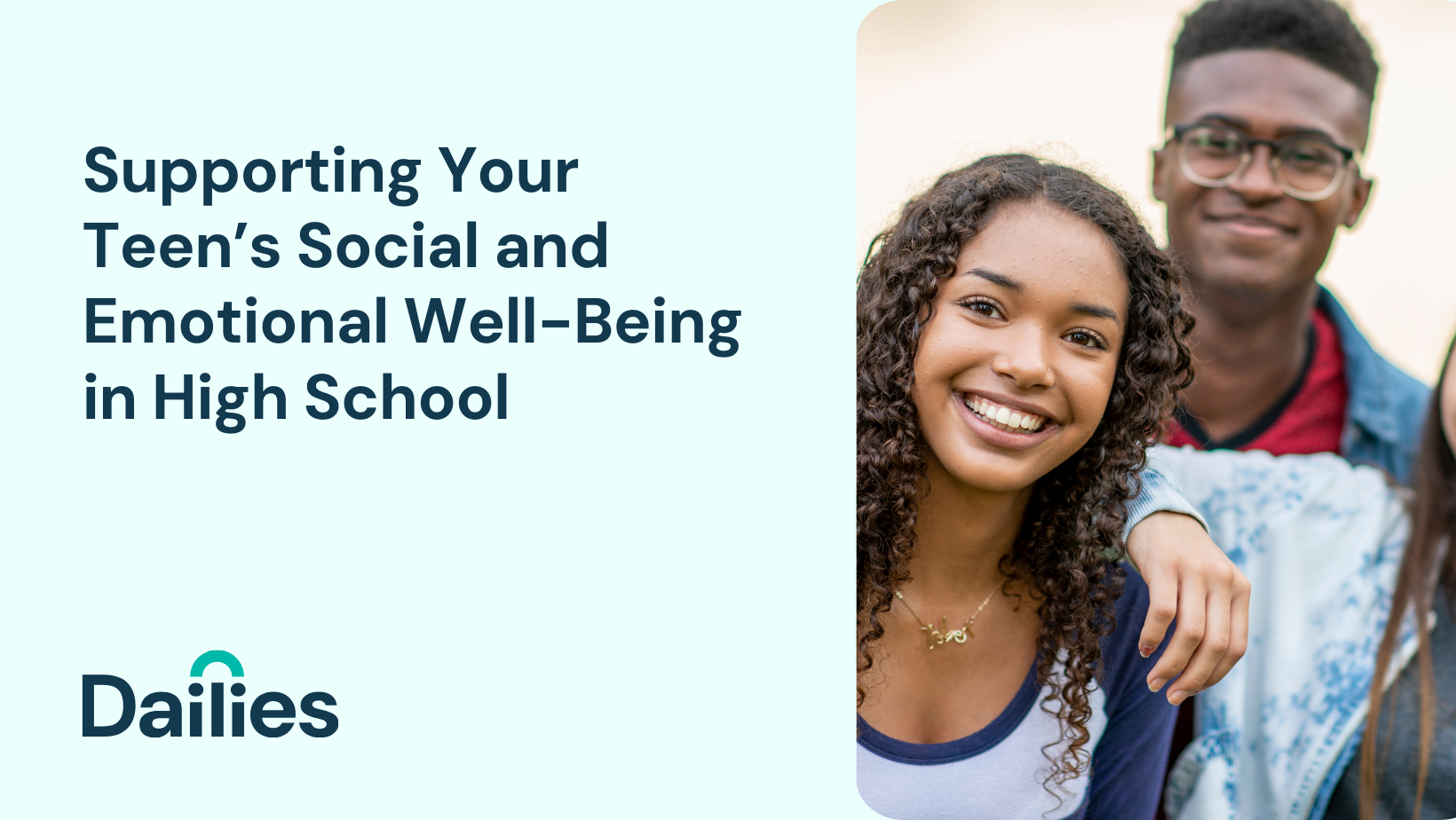Written by
Lauren Kelly Read all posts by this author
Supporting your Teen’s Social and Emotional Well-Being in High School
The beloved children’s show creator Mr. Rogers once said, “The biggest mistake a parent can make is not to remember their own childhood.” He was referring to small children when he said it, but the idea can also be applied to teenagers. Seemingly overnight, the sweet, albeit trying, young child who just had to follow you everywhere, asked you a million questions, and always wanted to be with you is gone. In their place is a teenager who may act as if they do not need you anymore and may even show a rebellious attitude you have never seen from them before. Suddenly, the small child who would not give you one moment to yourself would rather be with their friends than with you, and it can feel challenging to connect with them. So, what would Mr. Rogers’s advice be? Let’s remember what it felt like to be a teenager. There are heightened emotions, feeling overwhelmed with all the obligations, and seeking independence.
There are heightened emotions as you try to discover your identity.
Your teen will make mistakes and bad decisions, and every emotional reaction may feel much bigger than it is. Support them and help them to know that you are always behind them, even if you don’t understand why they are making such a big deal about whatever it may be that they are dealing with. (IE, my friend is mad at me, my boyfriend/girlfriend broke up with me, etc.) As adults, we may be able to look at something like a high school relationship objectively and see where it fits in within the “big picture,” but a teenager’s brain is not wired that way yet.
Sometimes, the best way to learn a lesson is through mistakes.
Help your teenagers know that you love them and will help them even when they mess up. A good question to ask them is, “Are you looking for advice, or do you just need to vent?”
Carve out time in your schedule to talk to them.
If possible, a family dinner each night with no technology can be a great way to connect with your teenagers.
If they are not opening up about themselves, try asking about their friends. It can help you better understand what is going on in their lives. Getting to know their friends can also help you monitor if your teenager is spending time with people who are a good influence on them.
Show interest in their interests.
Ask about their favorite music, movies, artists, etc. You may not find the appeal in their choices, but it shows them you care.
Get involved! Help with concessions at their next game or volunteer in some way.
Model good behavior.
Being open about your mental health can encourage your teenager to discuss their mental health.
Help them keep track of their obligations.
Help them keep an agenda or journals to track their many obligations. Dailies has an additional blog post with examples on its website!
Keep it Positive!
Your teenager wants to try to stretch their wings as they prepare to leave the nest. As hard as it is, don’t fight this. It is a natural response.
Overall, you know your child better than anyone, so find what works for your family. Create those moments of connection with them, show interest in their interests, and let them know you support them. And when it feels the most frustrating or overwhelming, remember Mr. Rogers’s advice: we have all been there, and we did not stay teenagers forever.

